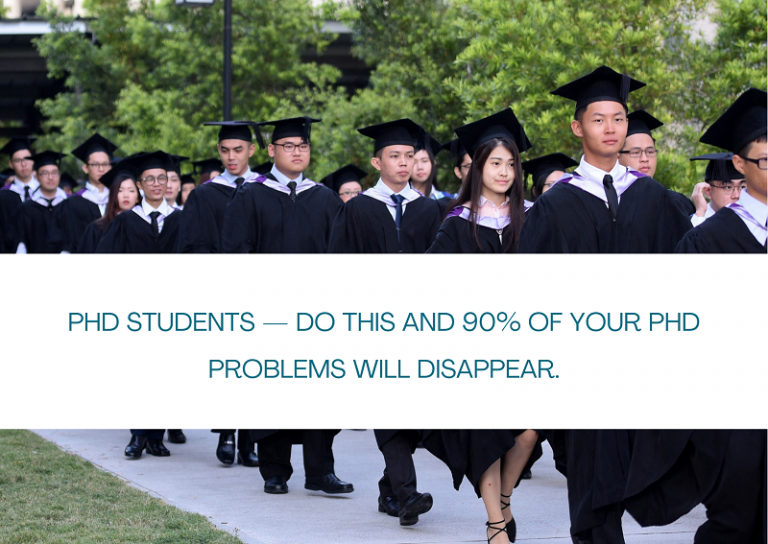8 Way to identify the research gap for your PhD and MS/MPhil:
A research gap is an unanswered question or problem in your field. Answering this question or solving this problem will be the objective of your PhD/MS research.
Here is one way to identify the gap.
𝟏. 𝐈𝐝𝐞𝐧𝐭𝐢𝐟𝐲 𝐫𝐞𝐬𝐞𝐚𝐫𝐜𝐡 𝐚𝐫𝐞𝐚: Before identifying the gap, you need to identify the area. This is quite easy. The area can either come from your previous interests or your supervisors can give it to you. For example, detecting cyber-attacks is a research area.
𝟐. 𝐑𝐞𝐚𝐝 𝟓-𝟏𝟎 𝐥𝐢𝐭𝐞𝐫𝐚𝐭𝐮𝐫𝐞 𝐫𝐞𝐯𝐢𝐞𝐰𝐬 𝐢𝐧 𝐭𝐡𝐞 𝐚𝐫𝐞𝐚: Once the area is identified, search for 5-10 most relevant literature reviews/secondary studies in the area. These papers have already reported a summarized view of the existing primary studies. Read these papers carefully to understand what literature already exists in the area.
𝟑. 𝐅𝐨𝐜𝐮𝐬 𝐨𝐧 𝐭𝐡𝐞 𝐟𝐮𝐭𝐮𝐫𝐞 𝐫𝐞𝐬𝐞𝐚𝐫𝐜𝐡 𝐢𝐧 𝐭𝐡𝐞 𝐥𝐢𝐭𝐞𝐫𝐚𝐭𝐮𝐫𝐞 𝐫𝐞𝐯𝐢𝐞𝐰𝐬: While reading these 5-10 literature reviews, focus on the future research areas, open challenges, and discussion section. Identify 3-5 research directions from these literature reviews. Detecting data exfiltration attacks is a research direction.
Are you about to start writing your PhD thesis?
𝟒. 𝐂𝐡𝐞𝐜𝐤 𝐞𝐱𝐢𝐬𝐭𝐢𝐧𝐠 𝐥𝐢𝐭𝐞𝐫𝐚𝐭𝐮𝐫𝐞 𝐫𝐞𝐥𝐚𝐭𝐞𝐝 𝐭𝐨 𝐭𝐡𝐞 𝐢𝐝𝐞𝐧𝐭𝐢𝐟𝐢𝐞𝐝 𝐝𝐢𝐫𝐞𝐜𝐭𝐢𝐨𝐧𝐬: Just to make sure that you don’t end up doing something that already exists, search primary studies related to the research directions. Drop the ones where exactly similar works exist.
𝟓. 𝐃𝐢𝐬𝐜𝐮𝐬𝐬 𝐭𝐡𝐞 𝐢𝐝𝐞𝐧𝐭𝐢𝐟𝐢𝐞𝐝 𝐝𝐢𝐫𝐞𝐜𝐭𝐢𝐨𝐧𝐬 𝐰𝐢𝐭𝐡 𝐲𝐨𝐮𝐫 𝐬𝐮𝐩𝐞𝐫𝐯𝐢𝐬𝐨𝐫𝐬: Make a few slides to present the remaining directions to your supervisors. From here, you should pick the direction where you and your supervisor see the most potential.
𝟔. 𝐂𝐨𝐧𝐝𝐮𝐜𝐭 𝐚 𝐥𝐢𝐭𝐞𝐫𝐚𝐭𝐮𝐫𝐞 𝐫𝐞𝐯𝐢𝐞𝐰 𝐨𝐧 𝐭𝐡𝐞 𝐢𝐝𝐞𝐧𝐭𝐢𝐟𝐢𝐞𝐝 𝐝𝐢𝐫𝐞𝐜𝐭𝐢𝐨𝐧: Once the direction is picked, do a literature review on the specific direction. If no paper exists at all in this direction, this could mean two things – either the topic is not worth doing research or the topic is good but too new.
𝟕. 𝐈𝐝𝐞𝐧𝐭𝐢𝐟𝐲 𝐜𝐫𝐢𝐩𝐬 𝐠𝐚𝐩𝐬 𝐯𝐢𝐚 𝐭𝐡𝐞 𝐥𝐢𝐭𝐞𝐫𝐚𝐭𝐮𝐫𝐞 𝐫𝐞𝐯𝐢𝐞𝐰: This literature review process should get you the crisp gap. However, it won’t come automatically. While reading each paper, note down the points that you think could be worth future research. This will become part of your discussion or future research section. For example, detecting data exfiltration attacks in real-time is a gap.
𝟖. 𝐂𝐡𝐞𝐜𝐤 𝐫𝐞𝐬𝐨𝐮𝐫𝐜𝐞𝐬 𝐫𝐞𝐪𝐮𝐢𝐫𝐞𝐝 𝐭𝐨 𝐟𝐢𝐥𝐥 𝐭𝐡𝐞 𝐠𝐚𝐩: Once you have identified the research gap, check what kind of resources, data, infrastructure, etc, you need to conduct this research. Make sure that you can have access to these resources before you start working on the gap.
Writer: Faheem Ullah
Assistant Professor
Computer Science, Australia

















